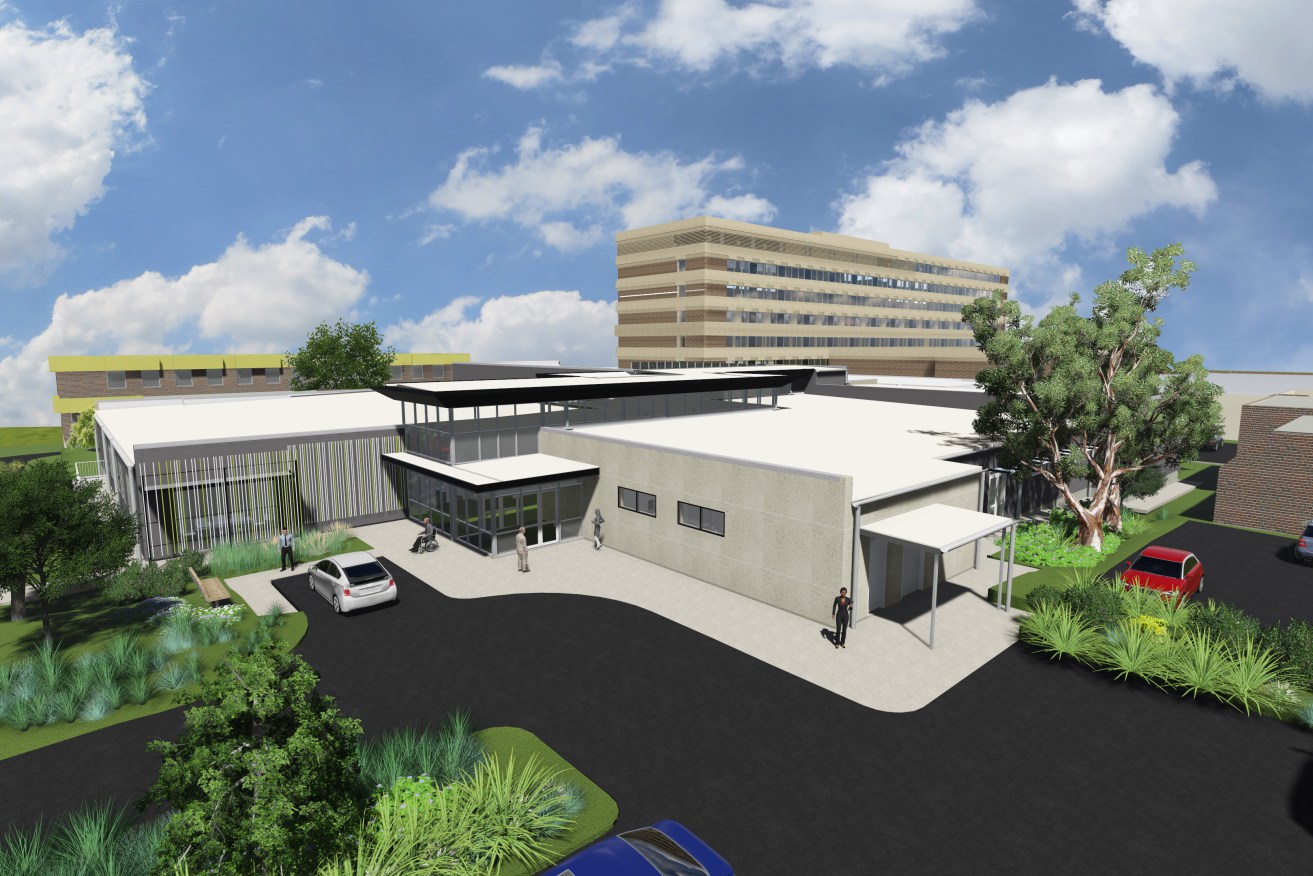Building better health services, closer to home
Contrary to some criticism, Transforming Health will deliver better services, closer to home, for people living in Adelaide’s north and north-east, argues Elaine Pretorius.

A Government image of new works planned for Modbury Hospital.
As a doctor who works at both the Modbury and Lyell McEwin Hospitals, I have been disappointed by some of the recent opinion pieces and news articles regarding the future of health services in the north and north east.
Having worked at these hospitals for more than 10 years, I am well aware of the planned changes proposed under Transforming Health and the profoundly positive impact they will have on the growing north and north eastern community.
Firstly, it’s important to view the planned changes in the context of patients who live in the northern area, and not simply from the perspective of an individual hospital.
The Northern Adelaide Local Health Network (NALHN) incorporates two hospitals which it uses to serve a population of more than 350,000 in the north and north eastern suburbs, as well as those from regional areas.
Currently, too many people from the north and north east receive hospital care outside of their local area. In 2015 alone, just over half of people from the north were treated in local hospitals. This compares to around 88 per cent in the central and southern areas.
While both the Modbury and Lyell McEwin hospitals do an excellent job in delivering specialty health care, there are a number of services that neither hospital can offer, particularly when it comes to after hours care.
For these services, we rely on other sites, such as the Royal Adelaide and The Queen Elizabeth Hospital, resulting in delays and poorer outcomes for our patients.
This is not acceptable and change is unquestionably required.
We will continue to have senior doctors and nurses available 24/7 to respond to deteriorating patients anywhere in Modbury Hospital and an emergency theatre will be available for complications that arise from surgical procedures.
To this end, $32 million is being invested to make Modbury Hospital the major elective surgery and rehabilitation hub for the north and north-eastern area.
This upgrade will result in more than 3,000 additional patients treated at Modbury each year and will significantly ease the burden of travel faced by many residents whose only option now is to go to hospitals further afield.
Each year there are up to 30 amputee patients from the north who have to travel beyond their local area to receive their acute and ambulatory health care. At Modbury we will be able keep these people in the north, closer to home, and offer a true comprehensive multidisciplinary model of care.
As a hub for elective surgery and rehabilitation, we will see around 1,800 more elective procedures (including scopes) being performed at Modbury a year, giving people in the north and north-east faster access to elective surgery, with fewer delays.
Lyell McEwin Hospital is now able to offer a 24/7 orthopaedic trauma surgery service, which is something we have never had before and means people no longer have to wait all weekend for surgery. Previously, orthopaedic surgery was only available from Monday to Friday, meaning that a patient who came in on a Friday night with a broken hip would have to wait till Monday before they were seen by a specialist.
We will continue to have senior doctors and nurses available 24/7 to respond to deteriorating patients anywhere in Modbury Hospital and an emergency theatre will be available for complications that arise from surgical procedures.
At Modbury Hospital we will continue to have a fully functional 24/7 Emergency Department staffed by specialist physicians who will be able to diagnose, stabilise and assess all patients, with only those suffering from life-threatening emergencies transferred, with diagnosis and management already in place.
Other services currently occurring at the Royal Adelaide and The Queen Elizabeth that relate to northern residents will be transferred to the north, allowing the Lyell McEwin to become the major tertiary hospital for the north, resulting in a workforce increase of up to 120 doctors, nurses and allied health professionals.
These changes will mean that some patients traditionally treated at Lyell McEwin will receive care at Modbury, while others who were traditionally cared for at Modbury will get their treatment at Lyell.
Most importantly, and what is absolutely clear, is that the many people who currently travel outside of the northern area for health care will have far greater access to services close to home.
Dr Elaine Pretorius is the Divisional Director of Medical Sub-Specialties at the Northern Adelaide Local Health Network.




